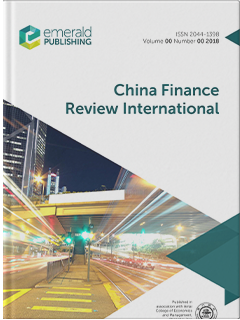Will commodity futures reduce systemic risk in the spot market? Evidence from Chinese commodity market
IF 7.6
1区 经济学
Q1 BUSINESS, FINANCE
引用次数: 0
Abstract
PurposeThis paper aims to investigate whether the establishment of commodity futures can effectively hedge systemic risk in the spot network, given the context of financialization in the commodity futures market.Design/methodology/approachUtilizing industry association data from the Chinese commodity market, the authors identify systemically important commodities based on their importance in the production process using multiple graph analysis methods. Then the authors analyze the effect of listing futures on the systemic risk in the spot market with the staggered difference-in-differences (DID) method.FindingsThe findings suggest that futures contracts help reduce systemic risks in the underlying spot network. Systemic risk for a commodity will decrease by approximately 5.7% with the introduction of each corresponding futures contract, since the hedging function of futures reduces the timing behavior of firms in the spot market. Establishing futures contracts for upstream commodities lowers systemic risks for downstream commodities. Energy commodities, such as crude oil and coal, have higher systemic importance, with the energy sector dominating systemic importance, while some chemical commodities also have considerable systemic importance. Meanwhile, the shortest transmission path for risk propagation is composed of the energy industry, chemical industry, agriculture/metal industry and final products.Originality/valueThe paper provides the following policy insights: (1) The role of futures contracts is still positive, and future contracts should be established upstream and at more systemically important nodes in the spot production chain. (2) More attention should be paid to the chemical industry chain, as some chemical commodities are systemically important but do not have corresponding futures contracts. (3) The risk source of the commodity spot market network is the energy industry, and therefore, energy-related commodities should continue to be closely monitored.商品期货能否降低现货市场的系统性风险?中国商品市场的证据
本文旨在探讨在商品期货市场金融化的背景下,建立商品期货是否能有效地对冲现货网络中的系统性风险。设计/方法/方法利用来自中国商品市场的行业协会数据,作者使用多图分析方法根据其在生产过程中的重要性确定系统重要性商品。在此基础上,运用交错差值法分析了期货上市对现货市场系统性风险的影响。研究结果表明,期货合约有助于降低基础现货网络的系统性风险。由于期货的套期保值功能减少了现货市场上公司的择时行为,每引入一份相应的期货合约,一种商品的系统性风险将降低约5.7%。为上游商品建立期货合约可以降低下游商品的系统性风险。能源商品,如原油和煤炭,具有较高的系统重要性,能源部门占主导地位的系统重要性,而一些化工商品也具有相当大的系统重要性。同时,风险传播的最短传导路径由能源行业、化工行业、农业/金属行业和最终产品组成。本文提供了以下政策见解:(1)期货合约的作用仍然是积极的,未来的合约应该建立在上游和现货生产链中更系统重要的节点上。(2)应更多地关注化工产业链,因为一些化工商品具有系统重要性,但没有相应的期货合约。(3)商品现货市场网络的风险源是能源行业,因此,应继续密切监测能源相关商品。
本文章由计算机程序翻译,如有差异,请以英文原文为准。
求助全文
约1分钟内获得全文
求助全文
来源期刊

China Finance Review International
BUSINESS, FINANCE-
CiteScore
12.40
自引率
1.20%
发文量
112
期刊介绍:
China Finance Review International publishes original and high-quality theoretical and empirical articles focusing on financial and economic issues arising from China's reform, opening-up, economic development, and system transformation. The journal serves as a platform for exchange between Chinese finance scholars and international financial economists, covering a wide range of topics including monetary policy, banking, international trade and finance, corporate finance, asset pricing, market microstructure, corporate governance, incentive studies, fiscal policy, public management, and state-owned enterprise reform.
 求助内容:
求助内容: 应助结果提醒方式:
应助结果提醒方式:


